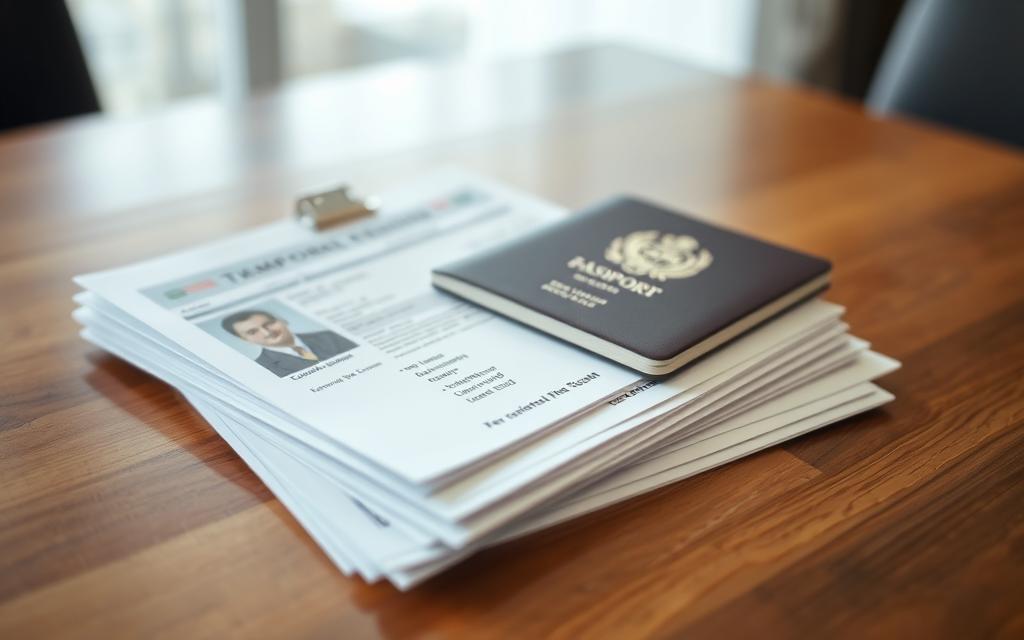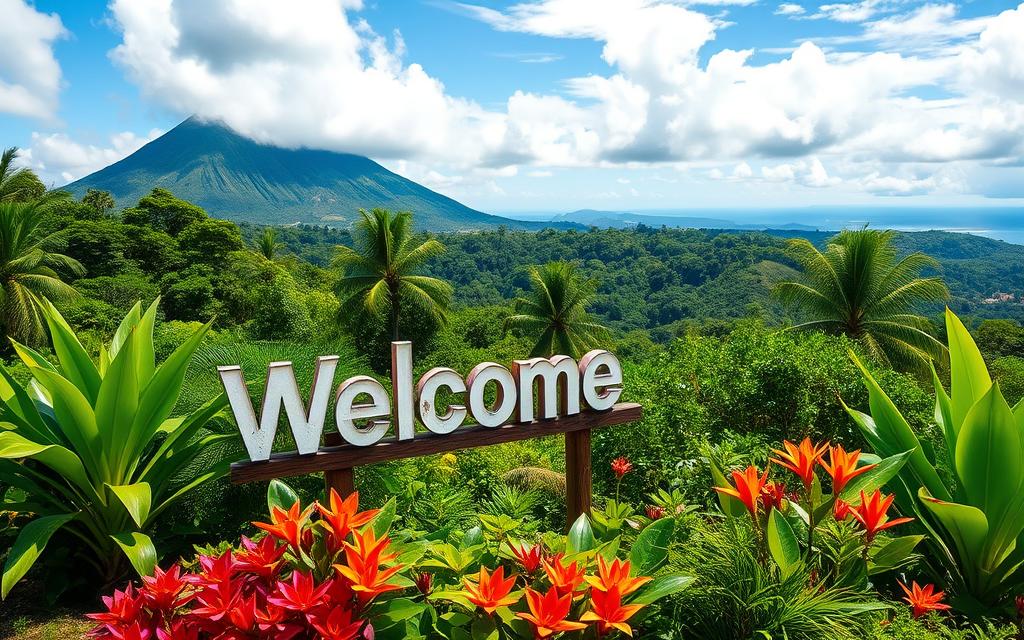Discover hard money loans for Costa Rica developers. Get access to significant funds with competitive rates and flexible financing options.

We Guide You Through Costa Rica citizenship vs permanent residency
Thousands of individuals dream of moving to Costa Rica, drawn by its lush landscapes and vibrant culture. However, navigating the legal pathways to residency or citizenship can be complex.
Costa Rica Immigration Experts (CRIE) has assisted numerous clients in achieving their immigration goals, boasting over 20 years of experience and thousands of successful residencies. Understanding the differences between Costa Rican citizenship and permanent residency is crucial for expatriates.
This comprehensive guide will walk you through the legal pathways, requirements, and benefits of both options, helping you make an informed decision about your future in this beautiful Central American country.
Understanding Legal Status Options in Costa Rica

Understanding the nuances of legal status in Costa Rica is crucial for individuals looking to relocate. The country offers various options, including visas, residency, and citizenship, each with its unique implications.
Legal status in Costa Rica directly affects several fundamental rights, including the right to work, access to healthcare, property ownership, and freedom of movement. With temporary residency, individuals can live like locals but face certain limitations, such as not being able to earn money from a Costa Rican company without a work permit.
The Difference Between Visas, Residency, and Citizenship
The primary legal status options in Costa Rica are visas, residency, and citizenship. A visa allows for temporary stay, residency provides a more permanent solution, and citizenship grants full rights and responsibilities.
- Visas are typically for short-term stays or specific purposes, such as tourism or business.
- Residency, whether temporary or permanent, offers more long-term stability.
- Citizenship provides the most comprehensive rights, including voting privileges and unrestricted employment.
Why Your Choice Matters: Rights and Limitations
The choice between visas, residency, and citizenship significantly impacts one’s lifestyle in Costa Rica. For instance, temporary residents face significant limitations, particularly the inability to work for Costa Rican companies without additional permits.
Permanent residents enjoy greater freedoms, including the right to work legally, but still lack certain political rights reserved for citizens. Citizens, on the other hand, receive the full spectrum of rights, including voting privileges, unrestricted employment opportunities, and consular protection when traveling internationally.
Carefully weighing these rights and limitations against personal circumstances and future plans is essential when deciding which status to pursue.
Temporary Residency: The First Step

For those looking to establish a life in Costa Rica, temporary residency is often the initial step. This residency category is designed for individuals who wish to live in Costa Rica for a specific period, typically as a precursor to permanent residency or citizenship.
Popular Categories: Investor, Rentista, and Pensionado
Costa Rica offers various categories for temporary residency, including Investor, Rentista, and Pensionado. The Costa Rica Immigration Experts can guide you through these categories to determine which best suits your needs. The Investor category is ideal for those who wish to invest in a business or real estate, while Rentista applies to individuals with a guaranteed income from abroad. Pensionado is designed for retirees with a pension.
Document Requirements and Application Process
The application process for temporary residency involves submitting several key documents, including a letter of application, birth certificate, certificate of police clearance, valid passport, and proof of financial means. All documents must be legalized through an Apostille stamp or by the Costa Rican consulate and translated into Spanish. The application begins with registering at a Costa Rican consulate to obtain a provisional visa, followed by fingerprint registration upon arrival in Costa Rica.
Understanding the requirements and preparing the necessary documents is crucial for a successful application. Ensuring that all documents are correctly legalized and translated will facilitate a smooth process.
Permanent Residency in Costa Rica

For those who have already taken the initial step of temporary residency, the next logical step is often to apply for permanent residency in Costa Rica. This status offers numerous benefits, including the freedom to work without the need for additional permits.
Eligibility Requirements After Temporary Residency
To be eligible for permanent residency, individuals typically need to have held temporary residency for a certain period. The specific requirements may vary, but generally, applicants must demonstrate a stable income, maintain a clean legal record, and meet other criteria set by the Costa Rican immigration authorities.
Rights and Limitations as a Permanent Resident
Permanent residents in Costa Rica enjoy several rights, including the right to work legally without needing a separate work permit. They also have the right to apply for citizenship after meeting the required residency periods. However, they still cannot vote in elections or hold certain public positions reserved for citizens.
- Permanent residents gain the crucial right to work legally in Costa Rica without requiring separate work permits, opening up employment opportunities throughout the country.
- Unlike temporary residents, permanent residents do not need to demonstrate specific income levels for renewals, though they must maintain their legal status through regular check-ins.
- Permanent residency status must be renewed every two years, a simpler process than temporary residency renewals but still requiring attention to deadlines.
- While permanent residents can work freely, they still cannot vote in elections or hold certain public positions reserved for citizens.
- Permanent residents maintain the right to apply for citizenship after meeting the required residency periods, creating a path to full legal integration.
Costa Rica Citizenship vs Permanent Residency
When considering a long-term stay in Costa Rica, understanding the nuances between citizenship and permanent residency is crucial. Both options offer a pathway to living in this beautiful country, but they come with different rights and responsibilities.
Key Differences in Legal Rights
Citizenship and permanent residency in Costa Rica have distinct legal implications. Permanent residency allows individuals to live and work in Costa Rica without the restrictions imposed on temporary residents, such as not being able to earn income from a Costa Rican company.
However, certain rights are reserved for citizens, such as voting and holding public office. Permanent residents, while enjoying most freedoms, do not have these specific rights.
Financial and Tax Implications
Both permanent residents and citizens are subject to Costa Rica’s territorial tax system, meaning they are taxed on income generated within the country, not on worldwide income. This can be a significant advantage for individuals with income sources outside Costa Rica.
Key differences include the requirement for permanent residents to demonstrate financial stability during renewal periods, a requirement not imposed on citizens. Additionally, investment opportunities may vary slightly, with certain regulated industries or government contracts potentially favoring citizens.
For individuals considering residency in Costa Rica or Costa Rica as their long-term home, understanding these nuances is essential for making an informed decision about which type of status is most beneficial.
Pathways to Costa Rican Citizenship
Costa Rica offers several pathways to citizenship, each with its unique requirements and benefits. One can become a Costa Rican citizen through marriage or after a certain period of residency.
Citizenship Through Marriage
Marriage to a Costa Rican citizen is a valid route to acquiring citizenship. This pathway simplifies the process, as the residency requirements are often more lenient for spouses of Costa Rican nationals. However, the exact requirements can vary, and it’s essential to consult the latest regulations or experts like Costa Rica Immigration Experts for precise guidance.
Citizenship Through Residency
For individuals who have been residents of Costa Rica, applying for citizenship is a significant step. The residency period required before one can apply citizenship varies based on the country of origin. If you come from a non-Spanish-speaking country, such as the U.S. or Canada, you need to have seven years of residency. In contrast, nationals from Spanish-speaking countries, like Mexico or Argentina, need five years of residency.
Key requirements for citizenship through residency include maintaining legal residency status for the specified number of years, demonstrating continuous physical presence, and proving integration into Costa Rican society. This includes community involvement, cultural adaptation, and Spanish language proficiency. The residency period is calculated from the date of official approval of residency status.
The Citizenship Application Process
Understanding the citizenship application process is crucial for prospective applicants. The process involves several steps that require careful preparation and attention to detail.
Required Documentation and Testing
Applicants must gather various documents, including proof of residency, identification, and potentially other supporting materials. The type of documents required may vary based on the applicant’s specific circumstances. Additionally, applicants may be required to undergo testing, such as a Spanish language proficiency test or a civics examination.
Timeline and Costs
The citizenship application timeline typically spans 10 to 18 months. The process is divided into several phases, including initial application review, examination, background verification, and final processing. While there are no government fees for the application, applicants should budget for associated costs, such as document legalization and translation services.
- Initial application review: 2-3 months
- Examination scheduling and completion: 1-2 months
- Background verification: 3-4 months
- Final processing: 4-6 months
Applicants can check their application status through the TSE’s online portal or by visiting their offices. Planning for this extended timeline is essential, as maintaining temporary or permanent residency status is necessary throughout the process.
Expert Immigration Services with Costa Rica Immigration Experts

For those seeking expert guidance on navigating Costa Rica’s immigration process, Costa Rica Immigration Experts (CRIE) offers comprehensive services. With a deep understanding of the local laws and regulations, CRIE’s team provides valuable advice to individuals and families.
How CRIE Simplifies Your Immigration Journey
CRIE begins every client relationship with a comprehensive consultation to understand specific circumstances, goals, and timelines for relocating to Costa Rica. The firm’s experts evaluate unique situations, including family composition and financial resources, to recommend the most appropriate residency category.
Personalized Consultation and Support
Personalized pricing and service packages are developed based on individual needs, ensuring clients receive exactly the support required. Ongoing support continues throughout the process, with regular updates and assistance with any questions or concerns that arise. For personalized consultation, please call or WhatsApp: +5068706-3888, +5068373-2085, or for US/Canada: +1-305-906-6784, or visit www.crie.cr or email info@crie.cr.
Conclusion: Making the Right Choice for Your Future in Costa Rica
The decision to pursue permanent residency or citizenship in Costa Rica is a significant one, influenced by personal circumstances and long-term goals. Expatriates must consider factors such as their desired level of integration into Costa Rican society, willingness to learn Spanish, and the importance of political rights like voting.
Both permanent residency and citizenship offer viable pathways to living in Costa Rica. While permanent residency provides most practical benefits, citizenship offers complete legal integration, including the right to vote. Many expatriates begin with temporary residency, progressing to permanent residency before deciding on citizenship. Working with experienced immigration experts like Costa Rica Immigration Experts can ensure a smooth journey toward establishing your legal status in this beautiful Central American country.


